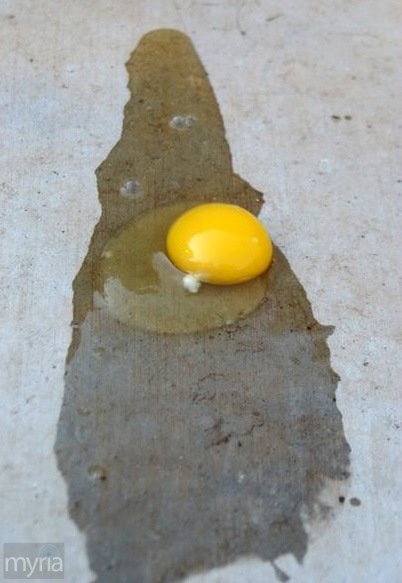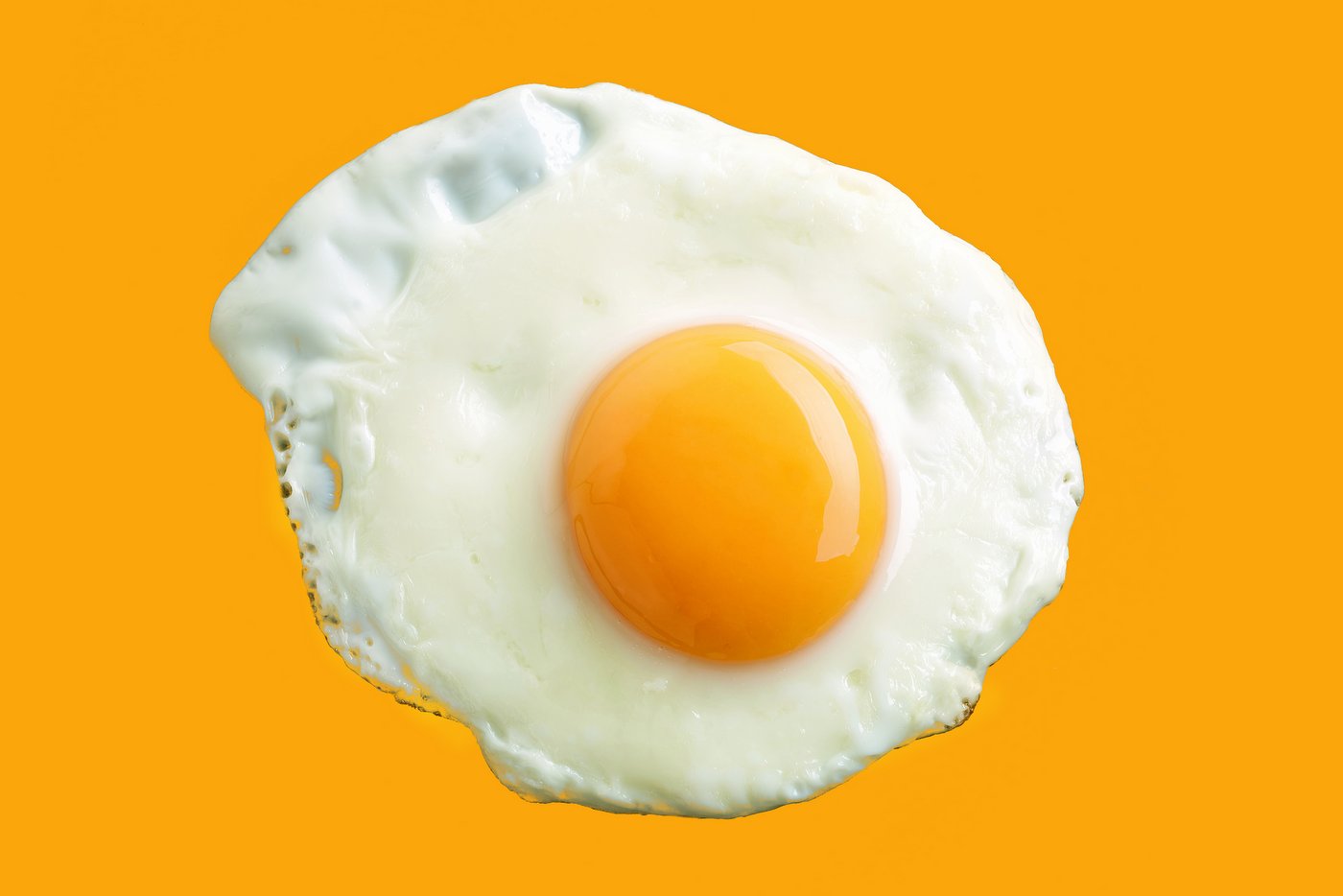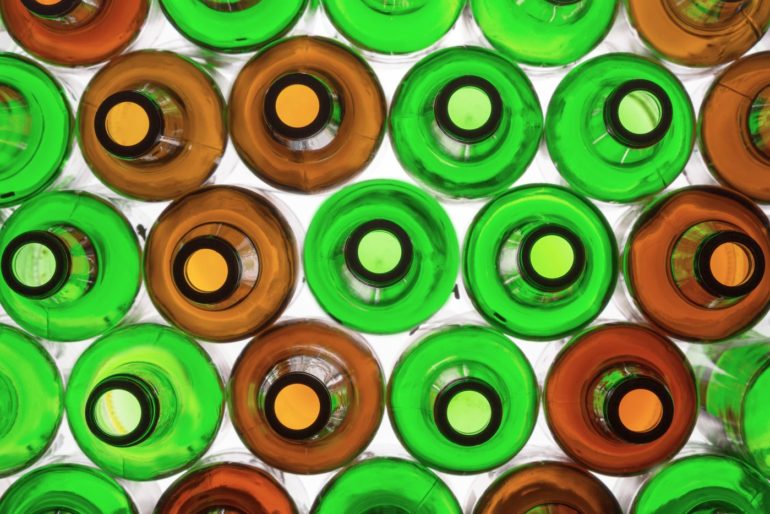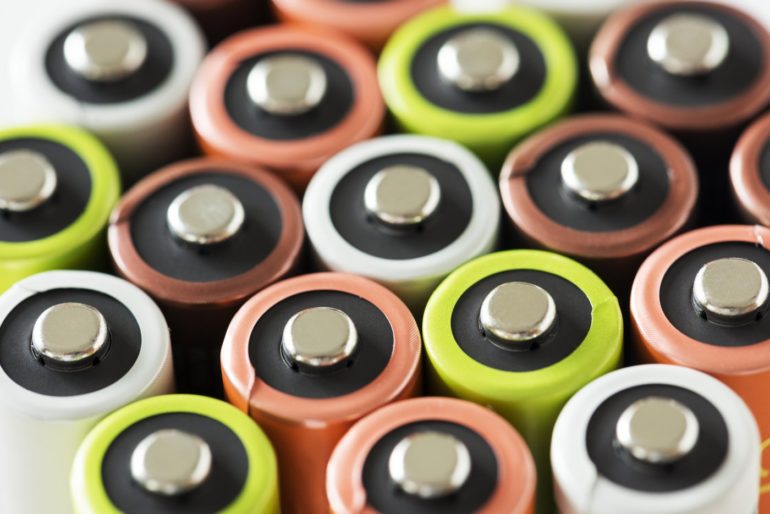Can you fry an egg on the sidewalk on a hot day?
When the thermometer shows a temperature several degrees past 100, and the wind feels like a blowtorch, you may wonder: Is it finally hot enough to fry an egg on the sidewalk?
“It’s so hot, you could fry an egg on the sidewalk!”
On a really hot day, is it actually possible to fry an egg on the sidewalk?
Yes — absolutely — you can fry an egg on the sidewalk on a hot day. You can also do it on a very cold day. All you need is something like a portable stove (and perhaps a tent, if it’s raining).
But without the stove, or any other cooking appliance or heat source? Sorry to bust this myth, but — in our experience, and based on insight gleaned from a number of sources — the answer to that one seems to be a no. At least you can’t cook it very well, or very fast, unless there is other equipment involved.

I did the experiment for myself in the Phoenix, Arizona, area in July of 2009 — the perfect time and place for such an experiment. The NOAA’s national weather service notes that in July 2009, there were 15 days with a high temperature of 110 degrees F or greater, which means it was the hottest month in observed history since 1896.
The photographic results are shown to the right. We observed on and off for about an hour, and the egg remained runny and messy until a neighbor’s very happy dog slopped up the mess.
I probably would have had better luck attempting to cook the egg on blacktop (which absorbs more heat) or on the hood of a car. The Library of Congress notes, “Metal conducts heat better and gets hotter, so people actually have been able to cook an egg on a car hood’s surface.”
Unfortunately, nobody we knew was willing to allow us to test that theory (and we definitely didn’t want to try it with our own cars). As an alternative, you could also try something like a Shoebox Solar Cooker.
Hot enough to fry an egg? Probably not
While to us it might feel as though the sun might just burn us to a crisp, eggs are apparently made of sterner stuff.
The textbook Essentials of Food Science says, “The egg white denatures, coagulates and becomes solid at temperatures of 144-149F (62-65C). Egg yolks begin to coagulate at 149F (65C) and become solid at 158F (70C).”







